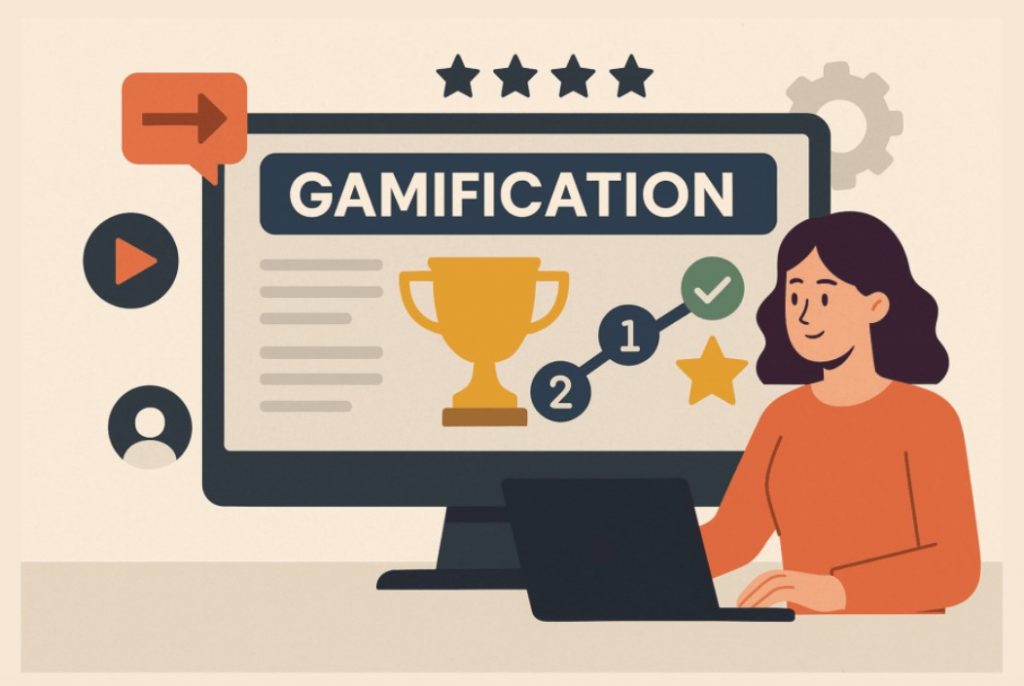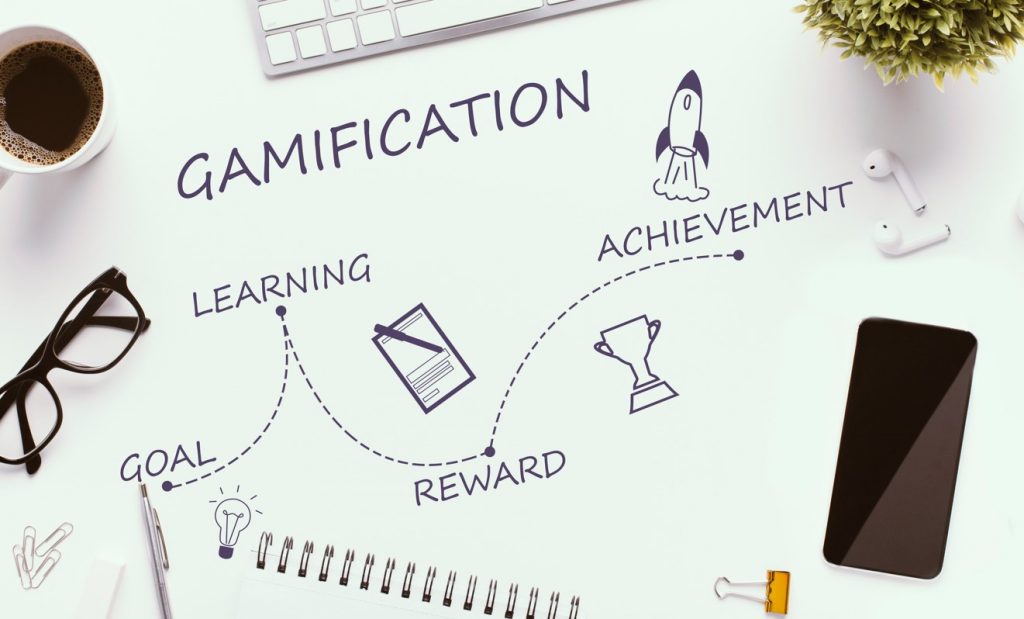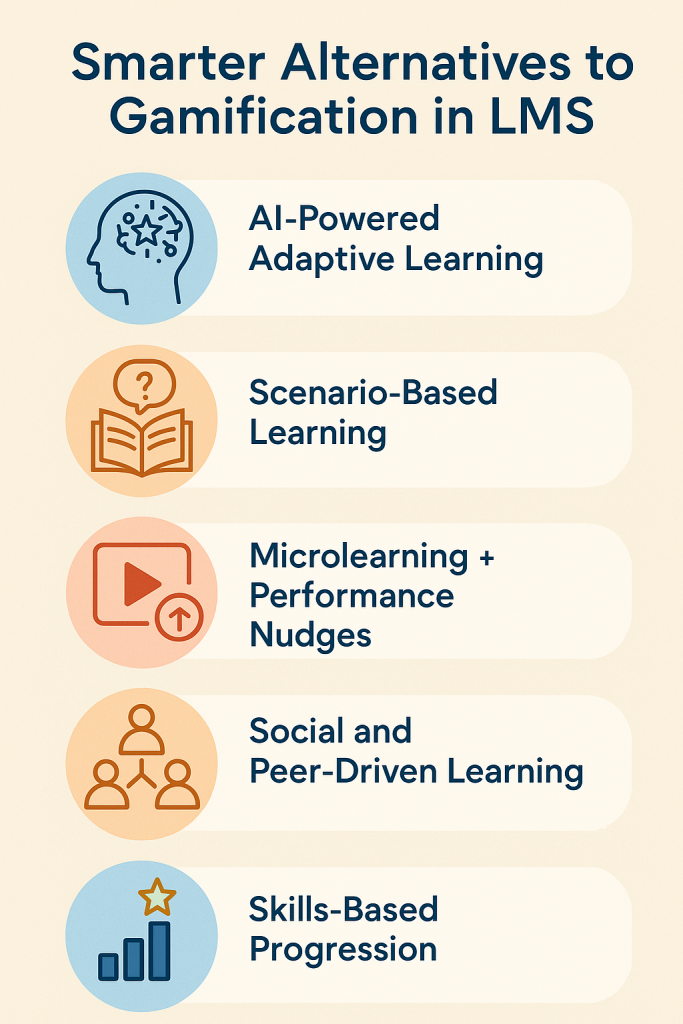Gamification once seemed like the silver bullet for improving engagement in eLearning and corporate training. Points, badges, leaderboards. It all felt exciting, like turning work into play. But the shine has worn off.
In 2025, it’s time we ask the hard question:
Is gamification effective in driving meaningful learning outcomes?
At Beetsol, we’ve seen firsthand what works and what doesn’t in digital learning systems. In this blog, we unpack why gamification may not be the game-changer it was once thought to be, explore its limitations, and introduce more powerful, intelligent strategies for real learning impact.
What is Gamification?

Gamification is the application of game-design elements, such as point scoring, competition, progress bars, and rewards, in non-game contexts like education or corporate training.
The intention is to boost learner motivation and encourage consistent participation. But here’s the key issue:
Gamification focuses on engagement, not on understanding
And in most learning environments, especially enterprise or professional training, engagement without effectiveness is just noise.
The goal? To increase engagement, motivation, and learning through fun and competition.
Examples of gamification in learning

- Earning badges after completing modules
- Leaderboards showing top-performing employees
- Unlocking levels as you progress
- Time-based challenges and quizzes
For a while, gamification worked. It added excitement and novelty. But that’s part of the problem, it was novelty, not sustainability.
Why Gamification Doesn’t Work Anymore
Gamification’s effectiveness is often surface-level. Many organizations using traditional gamification models today report low long-term engagement, poor knowledge retention, and minimal behavior change.
Here’s why:
1. Shallow Motivation
Gamification mainly triggers extrinsic motivation: learners complete tasks for the sake of rewards—not because they find the content valuable. Once the novelty wears off or the rewards stop, so does the participation.
2. Lack of Contextual Relevance
Winning a badge for answering 10 questions doesn’t guarantee that the learner can apply that knowledge on the job. Gamification rarely mirrors real-world applications or problem-solving.
3. Inequity in Engagement
Not all learners enjoy competition. In fact, some may find leaderboards discouraging, while others may game the system just to appear on top without actually learning anything.
4. No Long-Term Retention
Research shows that gamified LMS users often drop off after the initial excitement. Gamification alone rarely builds lasting memory retention or behavior change.
5. One-Size-Fits-All Approach
Gamification systems often fail to account for individual learning styles, needs, or job roles. Not every learner is motivated by points or competition.
6. No Real-World Context
Tapping a button faster or answering quiz questions quickly doesn’t always reflect real-world performance or deep understanding.
7. Game Fatigue
Just like mobile games, gamified learning can become repetitive and dull. Users lose interest when the content doesn’t evolve or offer real value.
Real-World Scenarios: When LMS Gamification Falls Short
1. A multinational retail company adopted a gamified LMS to train its sales team. While early results showed increased login frequency, by the third month:
- Completion rates dropped by 40%
- Employees admitted they were “just clicking to get the badge”
- The training failed to improve actual sales numbers on the floor
The issue? Points and badges didn’t translate to skills or behavior change.
2. A global logistics firm implemented a gamified LMS to train thousands of employees on new safety protocols. Initially:
- Engagement rose by 70% in the first month
- Leaderboards motivated quick participation
But within 3 months:
- Badge fatigue set in
- Learners began “clicking through” without paying attention
- Real incidents on the ground didn’t reduce
- Survey feedback: “It feels like a game, not serious training”
Lesson? The gamified LMS created surface-level activity, but no deep learning impact.
What’s Replacing Gamification in LMS?

Smart organizations are moving beyond badges and points. They’re looking for LMS platforms that deliver contextual, adaptive, and performance-based learning.
The future lies in advanced, AI-powered, learner-centric techniques. At Beetsol, we believe in creating smarter learning journeys, not just gamified ones.
Let’s look at what’s taking over.
1. AI-Powered Adaptive Learning
Instead of giving the same quiz to every user, AI tailors the learning path to each individual’s pace, strengths, and skill gaps.
- If a user is struggling, the LMS adapts to provide more support.
- If a user is advanced, it skips the basics and focuses on growth.
This ensures relevance and efficiency, not just flashy rewards.
2. Scenario-Based Learning
Gamification asks you to click. Scenario-based learning asks you to think.
Use real-life simulations and decision-making scenarios to:
- Mimic actual job roles
- Build problem-solving skills
- Encourage critical thinking under pressure
For example, a healthcare LMS could present emergency patient scenarios where a nurse makes real-time decisions that affect outcomes. This trains application, not memorization.
3. Microlearning + Performance Nudges
Modern LMS users prefer short, focused content—delivered just in time.
Combine this with smart nudges:
- A sales rep gets a quick 2-minute video tip before a client meeting
- A technician receives a quiz refresher after repeated field errors
These timely nudges create context-aware learning moments, not artificial points chasing.
4. Social and Peer-Driven Learning
Instead of competition, promote collaboration:
- Peer reviews
- Knowledge sharing forums
- Group tasks or breakout rooms
This taps into collective intelligence and enhances engagement far beyond leaderboards.
5. Skills-Based Progression
Don’t reward time spent. Reward real skills acquired.
The future of LMS is competency-based, where learners:
- Prove mastery before moving ahead
- Earn industry-recognized skill badges (not just internal points)
- Receive personalized recommendations based on skill progression
How Beetsol LMS Moves Beyond Gamification
At Beetsol, we don’t rely on superficial engagement techniques. Instead, we help organizations implement a powerful, AI-enhanced LMS solution that prioritizes real learning, real results, and measurable ROI.
We understand that modern learners want more than gimmicks. They want learning that:
- Feels personalized
- Adds value to their role
- Improves their actual performance
- Fits into their day, and not disrupt it
Beetsol’s smarter approach includes:
- AI-Driven Learning Journeys
Learners get dynamic, customized paths based on behavior, role, and skill level.
- Integrated Microlearning
Bite-sized, mobile-friendly content delivery with contextual prompts.
- Performance Analytics
Dashboards to track not just completions—but skill growth and job impact.
- Collaboration Tools
From forums to peer learning challenges, we build communities, not just individual scores.
The result?
Better retention. Stronger performance. More impact, without relying on outdated gamified gimmicks.
The Future of LMS: Intelligent, Not Gamified
Gamification isn’t dead, but it’s no longer enough.
In the next 3–5 years, LMS platforms will be judged not on how fun they are, but on how effective, intelligent, and outcome-oriented they can be.
The key trends:
- AI and data-driven personalization
- Learning in the flow of work
- Skill validation and real-time assessment
- Soft skill development via immersive experiences
At Beetsol, we’re building this future, one learner at a time.
It’s Time to Level Up (Without the Game)
Gamification had its moment, but in today’s world of digital learning, engagement without purpose is a wasted effort.
Your organization needs a learning system that does more than “engage”, it must transform.
Let’s talk about how Beetsol can help you build a modern, intelligent LMS strategy that delivers lasting value.
Contact us for a free demo or LMS consultation.
Let’s leave points and badges in the past, together!
